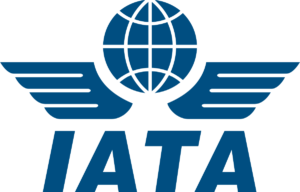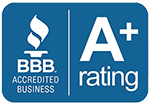This year Covid-19 has definitely had its influence on the aviation industry. This year the number of flights was reduced because of the coronavirus outbreak. The number of airline passengers was decreased by 95% this spring.
But despite the Covid-19 pandemic, air travel hasn’t completely stopped. It’s understandable that people that were locked down for months want to go and see a new place.
Despite the many restrictions, people are slowly starting to travel again. During the coronavirus break is really important to keep yourself and the others around you safe.

Although staying at home is now the best thing you can do to prevent the spread of the virus, people are tired of lockdown and some want to continue traveling by taking some safety measures.
Traveling can be a challenge during the coronavirus outbreak. Now it’s really important to avoid spreading the disease as much as possible. Authorities of all countries recommend staying at home and avoiding non-essential travel.
Airplanes are some of the places where you are likely to get coronavirus if you are not well-protected. The environment of an airport is usually crowded too. Any spot where there are large groups of people brings an increased risk of coronavirus contamination. And for this reason many people are afraid to fly.

But you can still travel in a safe way without getting the virus, if you follow some tips for protection. Air companies started introducing new procedures in order to make their customers safe while flying.
There are some tips to follow in order to travel in a safe way.
How to travel in a safe way during the coronavirus?
If you wonder if it’s safe to travel on an airplane, you should know that the airplane air is of good quality. Because a sufficient amount of clean outdoor air and fully recirculated air goes through a HEPA filter. This means the air in the airplane is safe.
Airports and airlines try to lower the risk of contagions by introducing some solutions such as intensive cleaning of the airplane cabin. Airlines are also reducing the capacity and creating more space between the passengers.
Most air carriers require their passengers and crew to wear face covers. They are introducing safety measures for both their flight attendant staff and customers. The measures include deep cleaning of the aircraft.
Airline companies started using electrostatic disinfectant that adheres to surfaces and require passengers to wear face masks.They also give their passengers wipes and hand sanitizer bottles which they can bring on board.
Another safety measure against Covid-19 is that air carriers try to seat the passengers in such a way so that there is more space between them.They also decreased the number of passengers sitting on a cabin which can be around 18. Some airlines have installed clear plastic barriers between the rolls in their airplane cabins as a type of separation.
At some destinations proof of a negative COVID-19 test is required but at other places passengers are tested on arrival. Coronavirus precautions also include plastic drape covers for the check-in counters of the airlines.

Some airlines changed their flight process by introducing touchless check-in. This enables passengers to complete their check-in for their flight by scanning their own ID. There are also air companies that use ultraviolet light and foggers for disinfection of the airplane.
Others introduced special thermal scanners that monitor the temperature of each customer that arrives on the airplane.
It’s important to limit your exposure to the virus. You should follow some tips to ensure your personal maximum safety.

Tips for flying in a safe way
Have a good hygiene

This safety measure is well-known. Having good hygiene is crucial right now. Carry a hand sanitizer with you and also use sanitizing wipes to clean the surfaces close to you.
If you cannot use soap and water, use a hand disinfectant that contains at least 60% alcohol.While hand sanitizers can irritate your skin, soap is another good option. Wash your hands with a soap for at least 20 sec.
It’s also a good idea to bring a zip-lock bag with you.You can put your ID card or passport in it after the airport staff gives it back to you.And after that you will be able to safely disinfect it.
Maintaining personal hygiene is important when it comes to protection against Covid 19. Covid 19 is one of the respiratory diseases that spread through drops of saliva or mucus.

So don’t touch your eyes, mouth or nose with unwashed hands. While airplane crews disinfect the surfaces inside the airplane cabin, it’s also good, if you clean your space too.
If you cannot use soap and water, use a hand disinfectant that contains at least 60% alcohol.While hand sanitizers can irritate your skin, soap is another good option. Wash your hands with a soap for at least 20 sec.
Practice social distancing
Keeping a distance from the other passengers is one of the best ways to keep yourself protected. But don’t forget that exposure can happen in many ways.
Passengers tend to walk around, go to the toilet and touch different surfaces inside the airplane. These can be shared armrests, seat trays, seat belts, restroom handles and other airport items. This puts you in the risk of contact with contaminated surfaces.
The virus can stay on surfaces for hours. That is why you should avoid touching many surfaces inside the airplane or the airport if possible. If you happen to touch a surface, disinfect your hands as soon as possible.

Choose the right air travel class
Business class flights are a great option when it comes to safe air travel. That’s because they offer a high level of privacy. Business class offers passengers more personal space in general.
The seats in business class have a distance between them. For this reason, if you choose to travel on business class, you will have less contact with other passengers.
Protect yourself against low humidity
Airplane cabins usually have low air humidity which dries out the mucous membranes of the nose, eyes and mouth. As a result they aren’t much effective in protecting us against the virus.
So, a good thing to do is to try to drink more water during your flight which will compensate for the lack of humidity inside the airplane cabin. Most frequent flyers use a nasal spray which has a moisturizing and cleansing effect for the nose.
Fortunately, there are some new airplane models with a special technology that allows high humidity levels. They are designed for long- haul flights.
Choose the right seat
If you sit at the window seat, you won’t be close to the aisle and there will be less people around you. It’s recommended to choose the window seat as it’s more far away than the other seats.
Another way to increase your protection against the virus is to choose a seat with a divider at one side. This will limit your exposure to the people going up and down the airplane aisle.

Get vaccinations
While there are no vaccinations for Covid 19, having the other necessary vaccinations is recommended. As a result your immune system will be strong.
Because the insurance policies of insurance companies vary, it’s good to inform yourself about the rules of your insurance company. You can also ask for advice your travel manager.
Some insurance companies don’t offer cover for epidemics and pandemics. Those of you who bought insurance before the beginning of Covid 19 can get a cover for medical expenses and cancellations.
Follow up-to-date travel advice
Learn the latest information and advice especially if you are traveling internationally. Get recent guidance of airlines and government agencies about the existing restrictions and policies concerning the coronavirus epidemic.
Avoid people with a cough or cold
According to experts, you are exposed to Covid-19 virus if you stand at a 6-feet distance from an infected person. The level of an infection risk for you is determined by the amount of exposure. It’s important how long you are exposed and how many are the virus-contaminated droplets in the air.
If you are traveling on an aircraft, there is an exposure, so you should sit two rows away from the infected person.
Get advice from a travel consultant
It’s good to choose a travel consultant or a travel insurance company that has a 24/7 emergency hotline. This will be really helpful during such times of crisis.
In case you get a denial to enter a country or you are put under a quarantine, your travel consultant should offer you valuable information and help. They should inform you about any flight changes, cancellations, accommodation, alternative routing.
You can also download the mobile app of the travel company to get the latest information about travel offers or changes in policy conditions.

Wear a mask
Don’t forget your mask when traveling on an airplane. In new situations it’s easy to go back to pre-pandemic habits. But wearing a mask is one of the best ways to minimize the risk of getting Covid-19 and you also set a good example for the other travelers.

Clean your environment
When you are traveling by an airplane, you are touching a lot of things where the virus can live and they should be disinfected. These are the armrests of the airplane seats and lounge seats, your seat itself, tray tables, seat belts, the doors of the airplane, the bathroom doors of the lounge
Choose connecting flights
The chance for you to contract coronavirus depends on the level of exposure you have. Therefore, by shortening your flight you can decrease the risk of getting coronavirus.
It’s a good idea to take connecting flights because in this way, if you have a seat next to an infected person,you will be seated close to them for a short duration. The goal is to spend less time in the aisle.

Upgrade to business class
Upgrading to a business class cabin will help you get less exposure to coronavirus. That’s because business class cabins have a convenient layout which offers plenty of space for each passenger.Airplane cabins of business class are designed to be spacious and offer maximum comfort.

Pick up your airline carefully
Check in advance the policies on boarding and seating of the different airlines. Some air companies try to decrease the risk of Covid-19 contamination by minimizing airplane cabin capacity. They are spacing passengers by leaving middle seats empty or having flights with empty rows.
Sometimes passengers board from the back of the aircraft. Some airlines received criticism as they filled their airplanes to capacity. For this reason they offer their customers the option to cancel their flight, if the flight has a passenger seating capacity that goes more than 70%.
Different airlines use different airplane technologies in the battle against Covid-19 spread. Check what engineering controls on its flights your air company uses to limit the risk of contamination .These can be on-board barriers, ventilation systems, electrostatic disinfectant sprays.
When the ventilation system of an airplane works properly, the aircraft has a very high ratio of recirculated air to outside fresh air. The ratio is higher than this of most commercial buildings.
The ventilation systems of airplanes also have HEPA filters which have 99.9% effectiveness in filtering particles with a size 0.3 microns in diameter. They can remove both small and large particles

Consider the purpose of the trip
There is no doubt that the best way to minimize the risk of contamination completely is to avoid traveling. You should better postpone the trip if you are going to visit someone who is old or have a preexisting condition. Avoid flying if you experience Covid-19 symptoms.

If the people you are going to visit are healthy and you are healthy too, the risk of infection is minimal but it still exists. If you choose a public transport such as airplane travel, you risk getting the virus during your flight and you put into risk the health of the people you are going to meet.
Book multiple flights
If you need to travel by airplane during this coronavirus epidemic, it’s a good idea to book more than one flight with a short duration. Short flights will help you have less amount of exposure to infected airplane surfaces or an infectious fellow traveler.




































